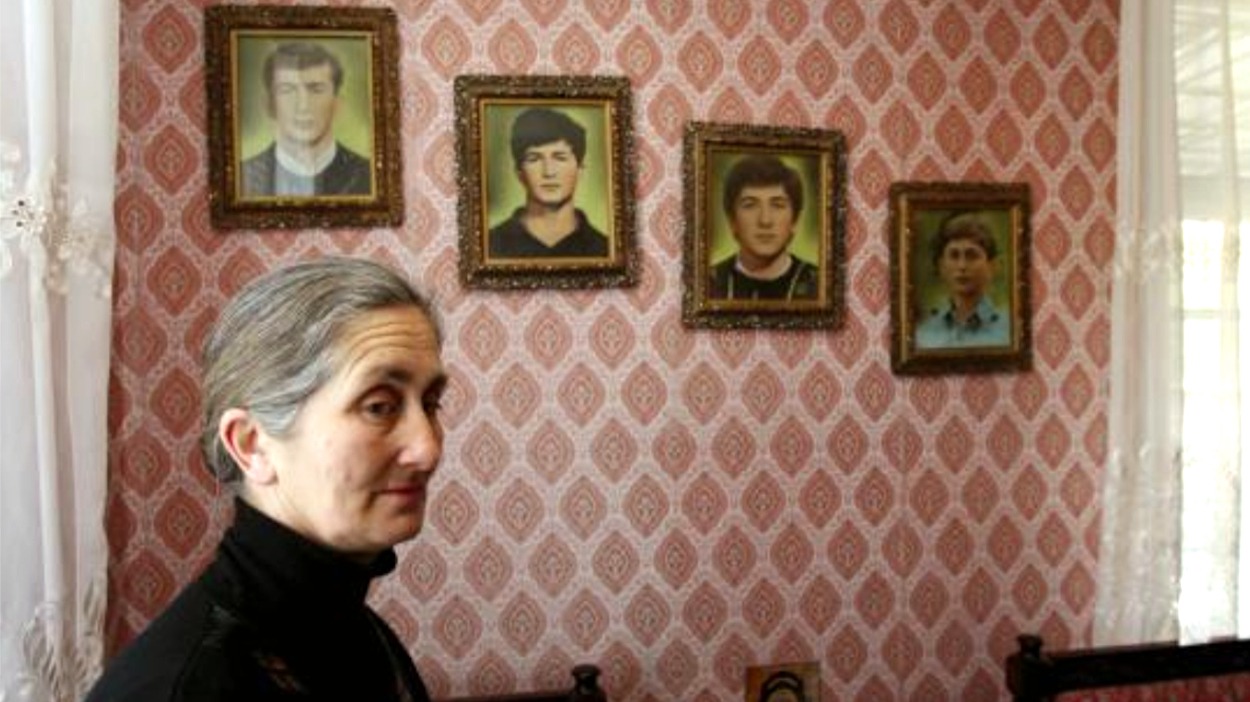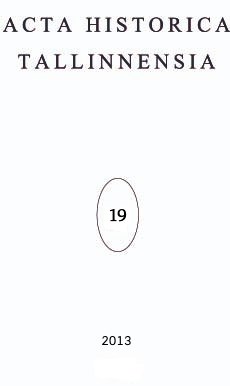Ajalugu, Sõda, Ajaloosõda. Abhaasia-Gruusia Vastuolud Ja Nende Tõlgendused - Aivar Jürgenson

Tamara Avidzba-Ezugbaya, a mother of four sons who died in 1992-93 Georgian-Abkhaz Conflict.
 Ajalugu, Sõda, Ajaloosõda. Abhaasia-Gruusia Vastuolud Ja Nende Tõlgendused
Ajalugu, Sõda, Ajaloosõda. Abhaasia-Gruusia Vastuolud Ja Nende Tõlgendused
Author: Aivar Jürgenson
Year: 2013
Publisher: Acta Historica Tallinnensia
Place of Publication: Tallinn, Estonia
Number of pages: 37 (147-183)
Language: Estonian
Acta Historica Tallinnensia, 2013, 19, 147-183. Acta Historica Tallinnensia is an international history journal published since 1997 by the Estonian Academy of Sciences in collaboration with Tallinn University and the University of Tartu.
Artiklis on käsitletud Abhaasia-Gruusia vastuolude ajaloolisi juuri ja näidatud, kui radikaalselt erinevad üksteisest eri poolte ajalootılgendused. Konflikt kulmineerus 1992.-1993. aastal peetud sõjaga kahe maa vahel, mille tulemusena tekkis de facto Abhaasia riik. On näidatud, kuidas abhaasi ajalookirjutus tırjub gruusia intellektuaalide rünnakuid nende ajaloole ja on samas rakendatud rahvusloome teenistusse.
History, War, War of History. On the Interpretations of the Georgian-Abkhazian Conflict
Aivar Jürgenson
Senior Research Fellow. School of Humanities. Tallinn University
"In the present contribution, I discuss the different perspectives of the Georgian - Abkhazian conflict in public discussions. I illustrate how the history written by Abkhaz authors historicises ethnic special characteristics and how this activity is coined as a response to the aggressive ambitions of the Georgians. According to the Georgian authors, the ancient Abkhazian Kingdom was ethnically Georgian, according to the Abkhazian authors, Abkhazian. The Abkhazian historical writing emphasises the centuries-long continuity of the Abkhazian state, whereas the Georgian writings point out its interruptions. In the Abkhazian historical writings, Georgia is presented as a chauvinist assimilator and a coloniser, whose activity brought along the escalation of the conflict during perestroika, which culminated with a war in 1992-1993. The war itself is presented as a patriotic war for the Abkhaz people, due to which, first and foremost, the contribution of the Abkhaz people and also that of their kindred nations is pointed out, but not that of Russians.
The Abkhazian historical writings that stress the link between the ancient and the contemporary Abkhazians, between the ancient and the contemporary state, are in compliance with the pattern of creating a nation: the national movements and interest groups strive for legitimising their attempts to gain independence by ethnicñcultural and settlement historical facts, if possible, also referring to any previous political independence."
The full article in PDF can be downloaded by clicking here (338 KB)